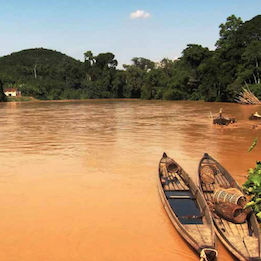By Dr. Lubna Alam, LESTARI, National University of Malaysia
In recent years the Pahang river basin has experienced devastating floods causing loss of lives and destroying agricultural fields and infrastructure. Recurrent floods have threatened the quality of the Pahang river water, which is used by over one and a half million people for drinking and domestic use. The local communities do not participate in water management programs. However, more engagement from all stakeholders could support the long-term success of water management programs, and ensure that the Pahang river continues to provide clean water to the local communities.
Objectives
The goal of the study was to assess the risk of urban water contamination in the Pahang river basin, to identify existing and potential water management practices, and to recommend strategies to decrease the risk of contamination.
Approach
Water quality data from 2006 to 2016 was kindly provided by the Department of Environment and the Malaysian Meteorological Department, and data for 2017 was obtained as part of the study. Surveys with communities living in flood-prone areas explored water management practices. Interviews with non-governmental organizations and local stakeholders focused on potential strategies for risk reduction.
Results Overview
Water quality parameters were within the range of recommended values for Malaysian raw water. The study did not identify any carcinogenic or non-carcinogenic risks linked to the components found in the water. However, the research also highlighted a significant correlation between the climatic variables and the water quality.
The surveys found that the local population is aware of the importance of water quality and willing to participate in water management programs.
Interviews with stakeholders from the government, non-governmental organizations, the private sector and the university highlighted several recommended risk reduction measures and strategies, including improving irrigation and drainage systems, increasing community engagement and organizing river cleanup programs.
Conclusion
The findings suggest that the Pahang river water is safe for drinking and domestic use. However, there is a risk that the water quality will decrease with future changes in climate. The local communities, although interested in water quality issues, have not been engaged in water management programs up to now – an increased involvement of the communities, including through education and awareness raising programs, is recommended. As a first step in this direction, a pamphlet and a quiz competition have been developed to raise awareness about water quality and actions that everyone can take to reduce water pollution.



